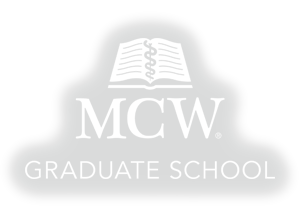
Biography
Year in IDP: 1st
Previous Education: BS, Biological Sciences, Arizona State University, 2022
Research Interests
I have a background in theatre, the service industry, and biology. This quirky combination helps me better communicate science to the general public. I initially studied general biology, but eventually became more interested in studying cancer. My journey in cancer research began with personal experiences with rare cancer in my family. When I was in high school, my mom became deathly ill with a rare cancer that has no standard treatment modality. I decided to dedicate my education to understanding cancer’s fundamental biology and to translate these findings into therapeutic advancements. For financial reasons, I had to leave my initial undergrad institution. Once able, I returned to school, while working full-time, as a non-traditional student and excelled. Now, I am studying rapidly translatable therapies for cancer. For my current project, I am re-investigating the mechanism(s) of action for farnesyl transferase inhibitors to provide a baseline for converting constitutively-active oncogenic proteins into dominant negative regulators of their collective signaling. I am the first in my family to achieve graduate-school education, and I believe that my work can and will benefit patients both in the short-term and long-term.
My formal training in research began in my undergrad where I helped investigate the utility of using THC nanoparticles to package rattlesnake venom as a form of chemotherapy for brain tumors. Later, I began my graduate training and got exposure to a broader range of studies through lab rotations. Throughout my rotations, I investigated mechanisms of resistance to MEK inhibitors in PDAC, the role of p38 gamma in PDAC development, NOX5's contribution to cell polarity and migration, and the role of non-canonical antigen-presenting fibroblasts in post-infectious Lyme's disease.
I selected the Dr. Thomas McFall lab for my dissertation lab, where we utilize a systems-biology approach to find targetable vulnerabilities within classic, oncogenic, signaling cascades. Currently, I'm re-investigating the mechanism(s) of action of farnesyl transferase inhibitors as proof of concept for how we can convert oncogenic RAS into an anti-proliferative stoichiometric sink. Beyond this project, I am also pursuing combination drug screenings to selectively inhibit wild-type RAS as a therapeutic approach for mutant-KRAS CRC.
In the future, I hope to continue my work in cancer research, and to focus on providing real-time benefits for real patients in clinic.


